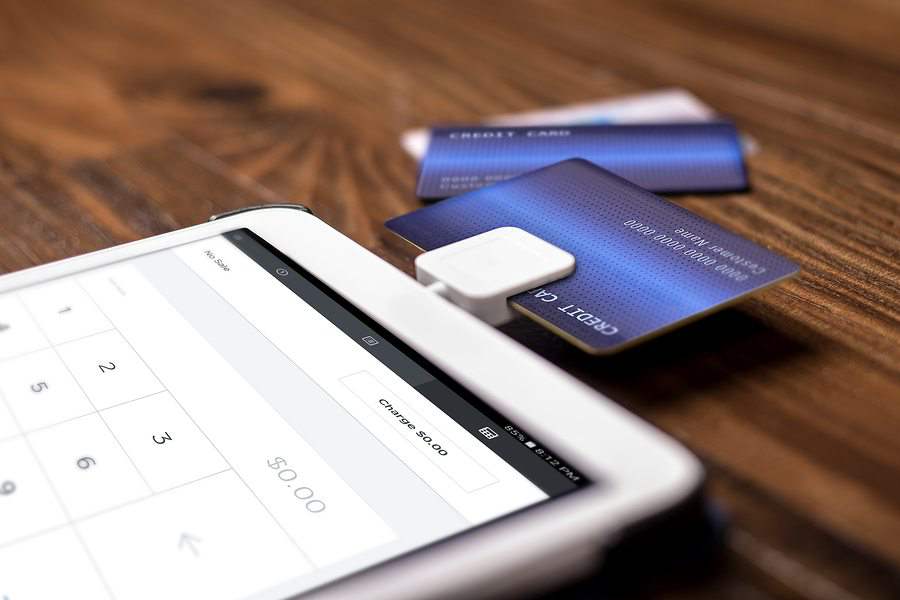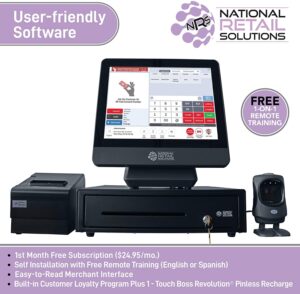
In 2023, the world of business is becoming increasingly digital, and having a reliable mobile credit card processor is essential for success. Whether you’re a small startup or an established company, finding the right processor can make all the difference in streamlining your transactions and providing a seamless customer experience. With so many options available, it can be overwhelming to navigate the landscape and choose the best fit for your specific needs. Thankfully, this article is here to guide you through the process and help you find the perfect mobile credit card processor for your business in 2023.

What is a mobile credit card processor?
Definition and function
A mobile credit card processor is a technology solution that allows businesses to accept credit card payments using mobile devices such as smartphones or tablets. It essentially turns these devices into portable payment terminals, enabling businesses to securely process transactions on the go. Mobile credit card processors come with specialized software or apps that facilitate the payment processing and ensure the necessary security measures are in place to protect sensitive customer data.
Advantages of using a mobile credit card processor
There are several advantages to using a mobile credit card processor for your business. Firstly, it offers convenience and flexibility by allowing you to accept credit card payments anytime, anywhere. Whether you’re at a trade show, a client’s location, or even on the road, you can easily take payments without the need for a traditional cash register or bulky card machine.
Another advantage is the potential for increased sales. Studies have shown that businesses that accept credit cards tend to attract more customers and experience higher average transaction values. By offering the convenience of credit card payments, you can tap into a larger customer base and provide a seamless purchasing experience.
Mobile credit card processors also provide faster transaction processing, allowing you to complete sales quickly and efficiently. With the ability to accept payments instantly, you can reduce wait times for customers and improve overall customer satisfaction.
Additionally, using a mobile credit card processor can enhance your business’s professionalism and credibility. Customers expect businesses to accept credit cards as a standard payment method, and by offering this option, you can instill confidence in potential buyers and establish your brand as modern and customer-focused.
Types of mobile credit card processors
There are several types of mobile credit card processors available in the market, each with its own features and benefits. Here are some common options:
-
Mobile card readers: These small devices can be plugged into the audio jack or connected wirelessly to a mobile device. They are usually provided by the processor and allow you to swipe or dip physical credit cards for payment.
-
All-in-one payment solutions: These solutions include a mobile card reader and a mobile app or software. They often provide additional features such as inventory management, reporting, and customer relationship management (CRM) tools.
-
Mobile wallet systems: These enable customers to pay using their smartphones or smartwatches by securely storing their payment information. Examples include Apple Pay, Google Pay, and Samsung Pay.
-
Virtual terminals: These are web-based applications that enable businesses to manually enter credit card information for payment processing. They are typically used in situations where the physical presence of the card is not required, such as over-the-phone or online orders.
It’s important to choose the type of mobile credit card processor that aligns with your business needs and integrates well with your existing systems.
Considerations for choosing a mobile credit card processor
When selecting a mobile credit card processor for your business, there are several key factors to consider. These factors will ensure that the chosen processor meets your specific requirements and provides a smooth payment experience for both you and your customers.
Ease of use
One crucial consideration is the ease of use of the mobile credit card processor. The software or app should have an intuitive interface that is easy to navigate and understand. The process of accepting payments should be straightforward, with minimal steps involved. Look for processors that offer user-friendly interfaces and provide ample training and support materials for you and your staff.
Compatibility with devices
Make sure the mobile credit card processor is compatible with the devices you plan to use. Whether you prefer iOS or Android, ensure that the processor’s app or software is available for your chosen operating system. Additionally, check if the processor works with various models and generations of smartphones or tablets. Compatibility is essential to guarantee that the processor functions seamlessly with your existing hardware.
Security features
Security should be a top priority when choosing a mobile credit card processor. Look for processors that offer robust security measures to protect your customers’ payment information. Features like data encryption, tokenization, and secure payment gateways are crucial to prevent unauthorized access and data breaches. Consider processors that comply with Payment Card Industry Data Security Standard (PCI DSS) requirements to ensure the highest level of security.
Costs and fees
Consider the costs and fees associated with using a mobile credit card processor. Different processors have varying pricing structures, including transaction fees, monthly or annual subscription fees, setup or equipment costs, chargeback fees, and additional feature costs. Analyze your business’s projected sales volume and transaction frequency to determine a cost-effective payment processing solution. Remember to review contract terms, cancellation or termination fees, and any potential hidden charges.
Integration with other software systems
If your business relies on other software systems, such as a point-of-sale (POS) system, an e-commerce platform, or accounting software, ensure that the chosen mobile credit card processor integrates seamlessly with these systems. Integration eliminates the need for manual data entry and improves overall efficiency. Look for processors that offer pre-built integrations with commonly used software or have an open API that allows for custom integrations.
Customer support
Reliable customer support is essential when dealing with any technology solution. Look for mobile credit card processors that offer 24/7 availability and quick response times. Evaluate the support channels provided, such as phone support, email, or live chat, and determine if they align with your preferred methods of communication. Additionally, check if the processor provides comprehensive product documentation, resources, training, and onboarding assistance to help you make the most of their services.
Reporting and analytics capabilities
Consider the reporting and analytics capabilities of the mobile credit card processor. Detailed reporting can provide insights into your sales performance, customer behavior, and trends, enabling you to make informed business decisions. Look for processors that offer robust reporting features, customizable dashboards, and real-time analytics. The ability to export data or integrate with third-party analytics tools can also be beneficial for in-depth analysis.
Identifying your business needs
Before diving into the research and evaluation process, it’s crucial to identify your business’s unique needs and requirements. Understanding your specific context will allow you to make a more informed decision when choosing a mobile credit card processor.
Understanding your sales volume
Assess your average sales volume to determine the processing capabilities you need from a mobile credit card processor. If you have a high volume of sales, you’ll want a processor that can handle a large number of transactions efficiently. On the other hand, if you have low sales volume, you may prioritize affordability and flexibility over processing speed.
Identifying your target customer base
Consider your target customer base and their preferred payment methods. If your customers predominantly use credit cards, it’s important to choose a processor that supports a wide range of payment options and accepts major credit card brands. If your customers frequently use digital wallets or prefer contactless payments, ensure that the processor integrates with popular mobile wallet systems.
Analyzing your transaction types and requirements
Identify the types of transactions that are common within your business. Do you primarily process in-person, card-present transactions, or do you also handle online or over-the-phone sales? Understanding your transaction types will help you determine the necessary features and capabilities in a mobile credit card processor. For example, if you frequently process online payments, a processor with a robust payment gateway integration is essential.
Assessing your budget and financial capabilities
Evaluate your budget and financial capabilities to determine how much you can afford to invest in a mobile credit card processor. Consider not only the upfront costs but also the ongoing fees and charges associated with the processor. Carefully balance cost considerations with the desired features and functionalities to find a solution that fits within your budget while still meeting your business needs.
Researching available options
Once you have a clear understanding of your business needs, it’s time to research the available options in the market. Consider the following steps to streamline your research process:
Popular mobile credit card processors in the market
Start by identifying the popular mobile credit card processors in the market. Look for providers with a solid reputation and a track record of delivering reliable payment processing services. You can gather this information through online searches, industry publications, and recommendations from other business owners.
Reviews and ratings from other business owners
Read reviews and ratings from other business owners to gain insights into the experiences and satisfaction levels of users. Platforms like Trustpilot or industry-specific forums can provide valuable information about the strengths and weaknesses of different processors. Consider both positive and negative reviews to get a comprehensive understanding of each processor’s performance.
Comparing features and offerings
Compare the features and offerings of different mobile credit card processors. Look for key features like customization options, inventory management capabilities, CRM tools, and reporting functionalities. Evaluate each processor based on your business needs and prioritize the features that are most important to you.
Exploring pricing plans and contract terms
Review the pricing plans and contract terms of shortlisted processors. Pay attention to transaction fees, monthly or annual subscription fees, setup or equipment costs, and any potential additional charges. Ensure that the pricing aligns with your budget and that the contract terms are reasonable and flexible. Avoid long-term contracts or extensive cancellation or termination fees if possible.
Requesting demos or trials
Where possible, request demos or trials of the mobile credit card processors you are interested in. This will allow you to experience firsthand how the software or app works and assess its usability. Take this opportunity to ask questions and clarify any doubts or concerns with the provider. A demo or trial can be instrumental in making an informed decision.

Evaluating security measures
Security should be a top priority when choosing a mobile credit card processor. Consider the following security measures when evaluating different processors:
Data encryption and tokenization
Ensure that the processor offers robust data encryption and tokenization techniques. Data encryption protects sensitive payment information from unauthorized access, while tokenization replaces cardholder data with unique tokens to further enhance security.
PCI compliance
Verify that the mobile credit card processor complies with Payment Card Industry Data Security Standard (PCI DSS) requirements. PCI compliance ensures that the processor adheres to industry best practices and security protocols to protect cardholder data.
Authentication and verification processes
Look for processors that have strong authentication and verification processes in place. Two-factor authentication, biometric authentication, or multi-step verification can add an extra layer of security to prevent unauthorized access to the payment system.
Fraud detection and prevention
Check if the processor utilizes fraud detection and prevention measures. Look for features like real-time fraud alerts, address verification service (AVS), and card verification value (CVV) verification to mitigate the risk of fraudulent transactions.
Device and network security
Consider the security measures implemented at the device and network level. Processors that prioritize secure network connections, encrypted communication channels, and regular security updates are crucial in safeguarding your business and customer data.
Understanding transaction and payment processing
When evaluating a mobile credit card processor, it’s essential to understand how it handles different aspects of transaction and payment processing. Consider the following factors:
Types of payment methods supported
Verify that the processor supports the payment methods commonly used by your customers. Besides credit cards, check if it accepts debit cards, digital wallets, or alternative payment methods like PayPal or Venmo. The broader the range of payment methods supported, the more convenient and flexible your payment options become.
Transaction processing speed
Evaluate the transaction processing speed of the mobile credit card processor. Quick transaction processing is crucial for providing a smooth and efficient checkout experience for your customers. Delays in processing can lead to frustration and potentially lost sales.
Payment gateway integrations
If you plan to sell online or through e-commerce platforms, ensure that the processor integrates seamlessly with popular payment gateways. This integration facilitates the secure transfer of payment information between your website and the processor, allowing for a seamless online transaction process.
Offline transaction capabilities
Consider whether the mobile credit card processor can handle offline transactions. In situations where an internet connection is not available, the ability to process transactions offline and securely store the payment information for later processing is essential.
International payment processing
If your business operates internationally or plans to expand globally, check if the processor supports international payment processing. Look for processors that accept multiple currencies, support international card brands, and comply with international payment regulations. The ability to offer seamless cross-border transactions is crucial for conducting business on a global scale.

Analyzing pricing structures and fees
Pricing structures and fees can vary significantly among different mobile credit card processors. Evaluating and understanding these costs will ensure that you choose a processor that aligns with your budget and financial goals. Consider the following aspects when analyzing pricing structures:
Transaction fees
Transaction fees are charges imposed on each processed transaction. Review the transaction fee rates offered by different processors and evaluate how they will impact your overall costs. Take into account the average transaction value and volume to determine the most cost-effective pricing structure.
Monthly or annual subscription fees
Some processors charge monthly or annual subscription fees for using their services. Consider whether these fees are a fixed cost or vary depending on your sales volume. Assess the value provided by the processor’s additional features or services to determine if the subscription fees are justified.
Setup or equipment costs
Check if there are any setup or equipment costs associated with the mobile credit card processor. Determine if the processor provides the necessary hardware, such as mobile card readers, or if you need to purchase them separately. Consider the upfront costs and factor them into your budget calculations.
Chargeback fees
Chargeback fees are charged when a customer disputes a transaction and requests a refund. Review the chargeback fee policies of the processors you are considering. Assess the thresholds and policies surrounding chargebacks, as excessive chargebacks can result in increased costs and potential account suspensions.
Additional features or add-on costs
Carefully review any additional features or add-ons offered by the processors. Determine if these features are essential for your business and if they come with additional costs. While some features may enhance your payment processing capabilities, consider whether they justify the associated fees.
Cancellation or termination fees
Check the cancellation or termination fee policies of the processors. Understand the financial implications of ending the contract prematurely or switching to another provider. Avoid excessive cancellation or termination fees that can trap you into an unsatisfactory agreement.
Considering integration with other systems
Integration with other systems is important for streamlining your business operations and ensuring smooth data flow between different software platforms. Consider the following integration possibilities when choosing a mobile credit card processor:
POS system integration
If you have a physical retail store, consider whether the mobile credit card processor integrates with your chosen POS system. Integration between the processor and the POS system allows for seamless inventory management, easy reconciliation of sales data, and simplified reporting.
E-commerce platform compatibility
If you sell online, ensure that the processor is compatible with your chosen e-commerce platform. Look for pre-built integrations or plugins that allow for easy connection between the processor and your online store. This integration enables automated payment processing and streamlined order fulfillment.
Accounting and bookkeeping software integration
Evaluate whether the mobile credit card processor integrates with your accounting and bookkeeping software. Integration with accounting software simplifies financial reporting, saves time on manual data entry, and improves accuracy in tracking sales and expenses.
Third-party app integrations
Consider whether the processor supports integration with third-party apps that are critical to your business operations. This could include customer relationship management (CRM) tools, email marketing platforms, or inventory management systems. Integration with these apps enhances productivity and provides a holistic view of your business data.
Inventory management system integration
If your business relies heavily on inventory management, check if the processor integrates with your chosen system. Integration with your inventory management system ensures accurate stock levels, seamless order fulfillment, and efficient inventory tracking.

Assessing customer support and service
Reliable and responsive customer support is crucial when dealing with any technology solution. Consider the following factors when assessing the customer support and service provided by different mobile credit card processors:
24/7 availability and response time
Check if the processor offers 24/7 availability for customer support. Businesses operate at different hours, and having access to support at any time is crucial for addressing urgent issues. Additionally, evaluate the expected response time for inquiries or technical support.
Support channels (phone, email, chat)
Evaluate the support channels provided by the processor. A combination of phone support, email, and live chat can cater to different communication preferences. Ensure that the support channels are easily accessible and responsive to your needs.
Product documentation and resources
Consider the availability of comprehensive product documentation and resources. Processor-provided guides, tutorials, and knowledge bases are valuable in learning and troubleshooting. Check if the processor invests in continuously updating and expanding their documentation to address evolving needs.
Training and onboarding assistance
Assess the level of training and onboarding assistance provided by the processor. Look for processors that offer detailed onboarding processes, training materials, and webinars to help you and your staff get up to speed quickly. Consider if the processor assigns a dedicated account manager or support team to assist you throughout the implementation and onboarding phase.
Technical support and issue resolution
Consider the technical support capabilities of the processor. Look for providers with experienced technical support teams who can efficiently handle and resolve technical issues. Access to timely technical support is essential to minimize downtime and ensure smooth payment processing.
Upgrades and software updates
Check if the processor regularly rolls out upgrades and software updates. Regular updates indicate that the processor is actively improving its services to meet customer needs and address emerging industry trends. Ensure that these updates are communicated effectively, and any associated downtime or disruptions are minimized.
Making the final decision
After thoroughly researching, evaluating, and comparing different mobile credit card processors, it’s time to make a final decision. Consider the following steps to ensure you choose the right processor for your business:
Comparing pros and cons of shortlisted providers
Create a summary of the pros and cons of each shortlisted mobile credit card processor. Assess how well each processor aligns with your business needs and priorities. Consider the features, pricing, security, and support factors to determine which processor provides the best overall value.
Weighing the importance of each factor
Evaluate the importance of each factor identified throughout your research process. Determine which aspects are critical for the success of your business and prioritize them accordingly. Consider both short-term and long-term implications when assessing the significance of each factor.
Considering long-term scalability and flexibility
Account for your business’s long-term scalability and flexibility when choosing a mobile credit card processor. Evaluate whether the chosen processor can accommodate your business’s future growth and changing needs. Scalability is essential to ensure that the processor can handle an increased sales volume or adapt to technological advancements.
Consulting with trusted advisors or industry experts
If necessary, seek advice from trusted advisors or industry experts. They can provide valuable insights and perspectives based on their experience and knowledge. Consider consulting with individuals who understand your specific business context and have experience with mobile credit card processing.
Negotiating terms and contract details
Once you have made your decision, take the opportunity to negotiate terms and contract details with the chosen mobile credit card processor. Discuss pricing, contract length, cancellation policies, and any other relevant terms. Aim to secure the most favorable terms possible while ensuring a mutually beneficial partnership.
Signing up and implementing the chosen mobile credit card processor
After finalizing the contract details, proceed with signing up and implementing the chosen mobile credit card processor. Follow the onboarding process provided by the processor and ensure that your employees are trained on the software or app. Test the payment processing capabilities thoroughly before fully launching the solution.
By thoroughly researching, evaluating, and selecting the right mobile credit card processor for your business, you can streamline your payment processing, enhance customer satisfaction, and drive sales growth in 2023 and beyond.





Leave a Reply